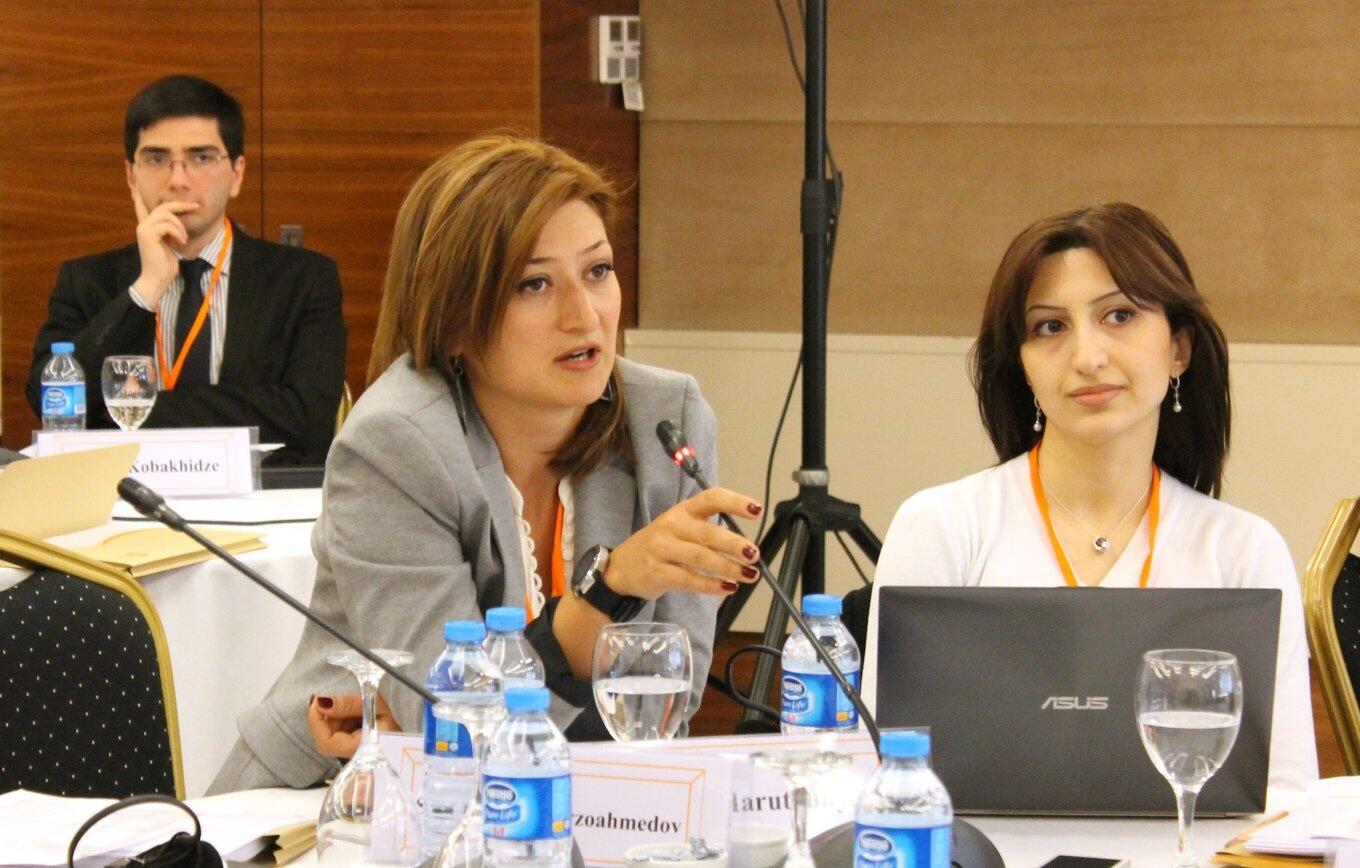ISTANBUL – Government officials from eight countries in Eastern Europe and Central Asia came together here with their counterparts from UNFPA offices and civil society from 9-11 April 2014 to explore new strategies for furthering gender equality and human rights.
The participating countries – Albania, Armenia, Azerbaijan, Belarus, Georgia, Tajikistan, Turkey and Ukraine – are all expected to report this year or next on their progress in implementing the Convention on the Elimination of All Forms of Discrimination against Women (CEDAW). Adopted in 1979 by the UN General Assembly, CEDAW is often described as an international bill of rights for women. The countries invited to the workshop are also undergoing the second round of Universal Periodic Review (UPR), in which UN Member States scrutinise each other’s records on human rights, including women’s reproductive rights, and provide recommendations. Though every country in the Eastern Europe and Central Asia region has ratified CEDAW and most have ratified its Optional Protocol, many lack effective mechanisms to monitor the full implementation of human rights treaties and national laws on gender equality.
“Many countries have been actively adopting laws and plans to advance sexual and reproductive health and women’s health and rights, but we’ve realised this isn’t enough,” said Alfonso Barragues, UNFPA Technical Advisor on Human Rights, who led participants in discussion of their countries’ experiences with protecting and monitoring sexual and reproductive health and rights.
The event was notable both for who attended and how the key topics were addressed, according to lead facilitator Pramila Patten, the Vice Chair of the UN CEDAW Committee.
“This was the first workshop where the close connection between CEDAW and UPR was explored in this way,” Patten said. “Having government officials participating almost in equal numbers with UNFPA [representatives] has also been extremely useful in terms of being able to appreciate country-specific needs and contexts.”
Participants said they valued the opportunity to learn from colleagues working in different sectors and in different countries in the Eastern Europe and Central Asia region.
“The workshop provided an opportunity to discuss with experts the process of preparing [Ukraine’s] report on CEDAW implementation, and to learn about good practices from other countries on engaging civil society organisations in the reporting process,” said Tetyana Kononovych, the head of the Ukrainian Ministry of Social Policy’s Division on Gender Equality.
“The government of Georgia has a lot of important issues on its agenda, especially considering the political situation, but that doesn’t exclude it from its obligations [under CEDAW and UPR],” said Mariam Bandzeladze of the UNFPA Georgia Country Office. “After hearing [our colleagues from] Azerbaijan talk about how beneficial it was to do a mock session on reporting, we think that would be a good tool to help prepare our government too.”
Other country groups said they would seek to organise similar workshops at home, initiate discussions on cooperation with their countries’ ministries of foreign and social affairs, and develop “mini action plans” that can be carried out by different government agencies to make the process of implementing and monitoring the international standards less daunting.
“Participants definitely came out with a much stronger understanding of the importance of accountability and different avenues that can be explored,” said Barragues. “Including representatives from country governments means they come out feeling more ownership of the [CEDAW and UPR] process and more empowered to support it.”



